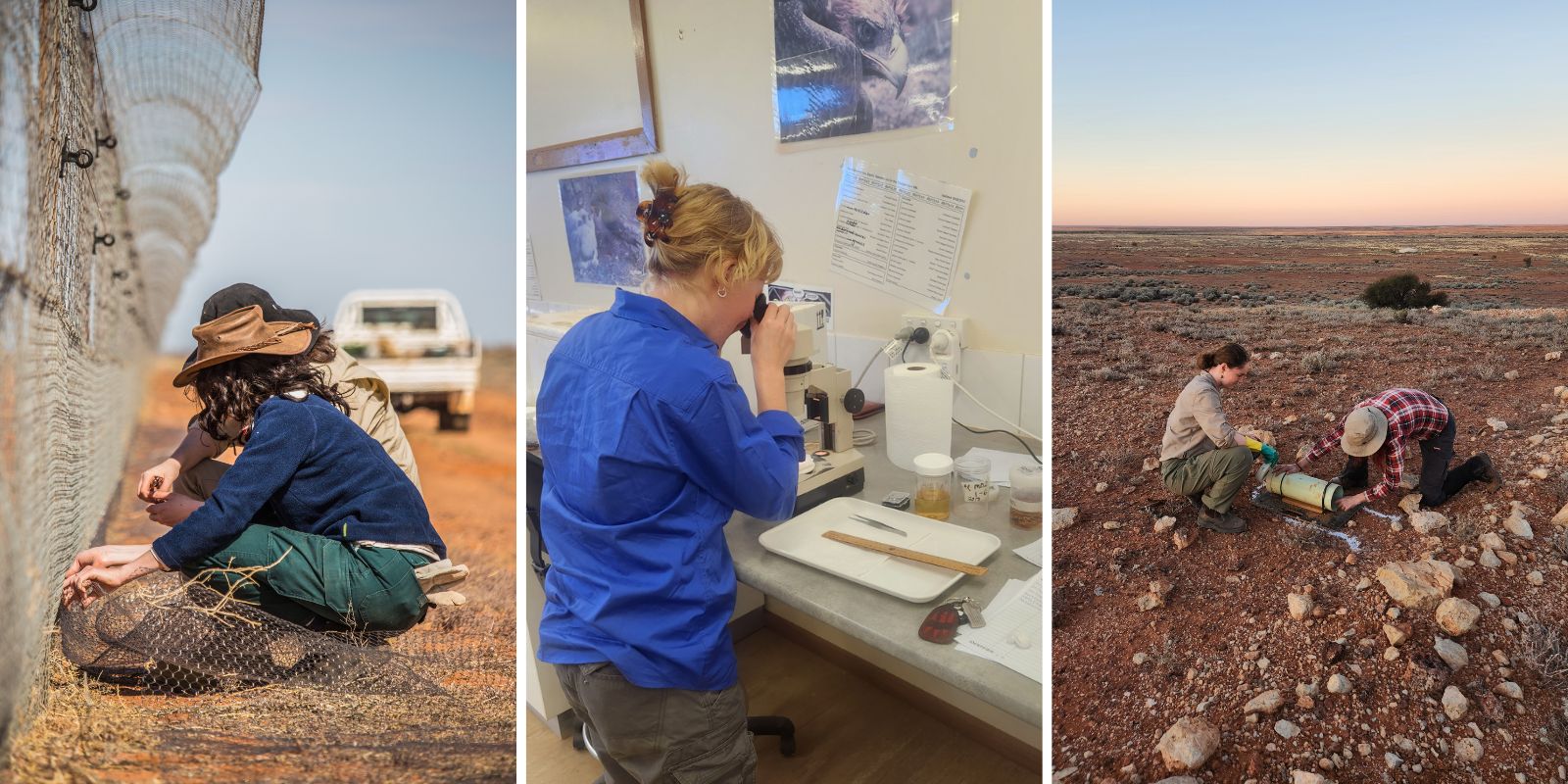Conservation Internship

Launch your ecological career with a hands-on Conservation Internship with Arid Recovery
Arid Recovery is offering two internships in 2026 for recent graduates looking to deepen their practical experience in ecology and conservation. Working alongside an experienced multidisciplinary team, the intern will contribute to the delivery of ecological research and field surveys that support threatened-species recovery and arid land conservation. The role also offers exposure to land management, stakeholder and community engagement, and science communication within a small, innovative conservation NGO.
-
Location: Olympic Dam, South Australia
-
Internship 1 dates: 30th April - 24th July 2026
-
Internship 2 dates: 13th July - 9th October 2026
Applications are now open until the 12TH of March
HOW TO APPLY IS
HERE
Tasks may include:
Collection and collation of ecological monitoring data (including vertebrate trapping and vegetation assessments)
Camera-trap and track-count surveys
Data mangement and reporting
Participation in land-management activities such as feral-animal control and reserve maintenance
Exposure to stakeholder and community engagement
Participation in research projects with Arid Recovery staff and collaborators
Community engagment through tours, events, and school visits
Housekeeping tasks essential for running a small NGO
Selection criteria:
A Bachelor degree in Science, Ecology Natural Resource Management, or Enivornmental Science
Experience in ecological and/or land management fieldwork
Experience with data entry and basic management
Demonstrated ability to independently and in a small team
Proactive and willing to take on unfamilar tasks, seek gudiance when needed
Physical fitness to undertake manual work outdoors in arid conditions
Willingness to live in a small, remote community for the duration of the placement
Eligible for living and working in Australia for at least 4 months
Current driver's licence
Fluency in written and spoken English
Bringing your own car for travel to and from the office and, as well as for personal use during the internship, is highly recommended.
Accommodation and a living allowance will be provided, as awll as contribution to your travel to and from Roxby Downs. Opportunities for paid casual work (tour guiding) may be available.
Past Interns
Ben Stepkovitch
Ben commenced a 3 month internship at Arid Recovery in February 2018. He had previously completed a Bachelor of Advanced Science (Zoology) and Masters of Research at Western Sydney University, where he studied the diets of Sydney’s urban foxes. Whilst at Arid Recovery, Ben completed a research project assessing the effectiveness of using SPOT Trace technology to remotely track feral cats. Since completing his internship, Ben went on to complete his PhD on quolls at Arid Recovery. He has published sevral papers.
Kirra Bailey
Kirra commenced a 3 month internship at Arid Recovery in February 2018. She had previously completed a Bachelor of Science (Biodiversity and Conservation) and Honours in Environmental Management at Flinders University, where she used aerial surveying to estimate feral goat population densities in the Ikara-Flinders Ranges. Kirra was involved in many elements of Arid Recovery’s research program and undertook a research project investigating inter-specific interactions between native rodent species.
Matthew Rostron
Matt commenced a 3 month internship at Arid Recovery in October 2017. He had previously completed a Bachelor of Science, Ecology and Conservation Biology with a minor in wildlife management at Griffith University, Gold Coast. During his internship, Matt was involved in a wide range of activities, including wildlife surveying, community engagement and researching one-way gate placement and monitoring methods.
Madeleine Wilcox-Kerr
Maddy commenced a 3 month internship at Arid Recovery in September 2017. She had previously completed an Honours degree at the University of New South Wales, where she studied the trophic cascades that have resulted from historic dingo exclusion in parts of the arid zone. Whist at Arid Recovery, Maddy conducted a research project investigating the distribution of the threatened plains mouse throughout the Reserve.
Peta Zivec
Peta commenced a two month internship at Arid Recovery in July 2017. She had previously completed a Bachelor of Science (Hons), majoring in Ecology and Conservation Ecology at Griffith University. Peta has a very keen interest in botany and threw herself into Arid Recovery’s flora monitoring surveys. Her favourite experiences were feral cat chasing (for research purposes) and waking up every morning and seeing red sand. Since leaving Arid Recovery, Peta has started a PhD at the Australian Rivers Institute, Griffith University, examining if large-scale re-vegetation in agricultural areas can build more resilient landscapes under climate change.